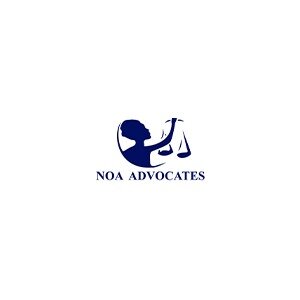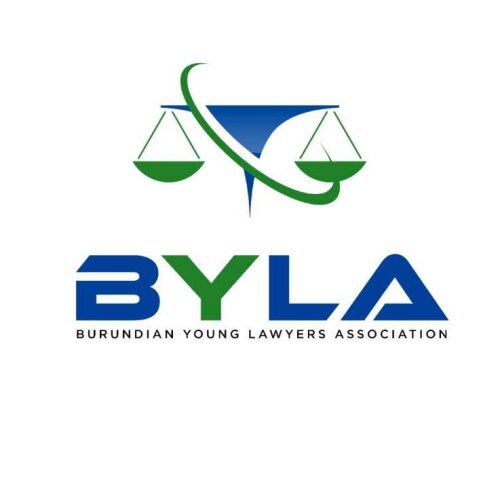Best Communications & Media Law Lawyers in Burundi
Share your needs with us, get contacted by law firms.
Free. Takes 2 min.
Or refine your search by selecting a city:
List of the best lawyers in Burundi
About Communications & Media Law in Burundi:
Communications & Media Law in Burundi governs the regulations surrounding media and communication activities in the country. This includes laws related to freedom of the press, censorship, defamation, privacy, intellectual property rights, and telecommunications.
Why You May Need a Lawyer:
You may need a lawyer in the field of Communications & Media Law in Burundi if you are facing issues such as defamation claims, copyright infringement, breach of privacy, regulatory compliance, or disputes with media organizations or telecommunications companies.
Local Laws Overview:
In Burundi, Communications & Media Law is governed by several key laws and regulations, including the Press Law, the Telecommunications Law, and the Law on Access to Information. These laws outline the rights and responsibilities of media organizations, journalists, telecommunications companies, and individuals in the country.
Frequently Asked Questions:
1. What is the legal framework for freedom of the press in Burundi?
The Press Law in Burundi guarantees freedom of the press, but it also contains restrictions on content that may incite violence or hatred.
2. Can I be sued for defamation in Burundi?
Yes, defamation is a criminal offense in Burundi, and individuals can be sued for publishing false or damaging information about someone else.
3. How can I protect my intellectual property rights in Burundi?
You can protect your intellectual property rights by registering your copyrights, trademarks, or patents with the Burundi Intellectual Property Office.
4. Are there any restrictions on access to information in Burundi?
Yes, the Law on Access to Information in Burundi allows for restrictions on access to certain information for reasons such as national security or public safety.
5. Can I start a media business in Burundi as a foreigner?
Foreigners can start media businesses in Burundi, but they may be subject to certain restrictions or regulations compared to local media organizations.
6. What should I do if my privacy has been violated by a media organization?
You can seek legal recourse by filing a complaint with the Burundi Communications Authority or by consulting a lawyer specializing in privacy law.
7. Are there any specific regulations for telecommunications companies in Burundi?
Yes, telecommunications companies in Burundi are regulated by the Telecommunications Law, which outlines licensing requirements, service standards, and consumer protection measures.
8. Can I be held liable for content posted on my social media accounts?
Yes, individuals can be held liable for defamatory or illegal content posted on their social media accounts, especially if they are the original creators of the content.
9. How can I report violations of Communications & Media Law in Burundi?
You can report violations of Communications & Media Law to the Burundi Communications Authority, the Ministry of Communication, or local law enforcement authorities.
10. What are the penalties for violating Communications & Media Law in Burundi?
The penalties for violating Communications & Media Law in Burundi can include fines, imprisonment, suspension of media licenses, or other administrative sanctions, depending on the nature of the violation.
Additional Resources:
For legal assistance in Communications & Media Law in Burundi, you can contact the Burundi Bar Association, the Burundi Communications Authority, or local law firms specializing in media and communications law.
Next Steps:
If you require legal assistance in Communications & Media Law in Burundi, it is recommended to consult with a lawyer who has experience in this field. They can provide you with expert advice and representation to navigate the complexities of the legal system and protect your rights.
Lawzana helps you find the best lawyers and law firms in Burundi through a curated and pre-screened list of qualified legal professionals. Our platform offers rankings and detailed profiles of attorneys and law firms, allowing you to compare based on practice areas, including Communications & Media Law, experience, and client feedback.
Each profile includes a description of the firm's areas of practice, client reviews, team members and partners, year of establishment, spoken languages, office locations, contact information, social media presence, and any published articles or resources. Most firms on our platform speak English and are experienced in both local and international legal matters.
Get a quote from top-rated law firms in Burundi — quickly, securely, and without unnecessary hassle.
Disclaimer:
The information provided on this page is for general informational purposes only and does not constitute legal advice. While we strive to ensure the accuracy and relevance of the content, legal information may change over time, and interpretations of the law can vary. You should always consult with a qualified legal professional for advice specific to your situation.
We disclaim all liability for actions taken or not taken based on the content of this page. If you believe any information is incorrect or outdated, please contact us, and we will review and update it where appropriate.
Browse communications & media law law firms by city in Burundi
Refine your search by selecting a city.











